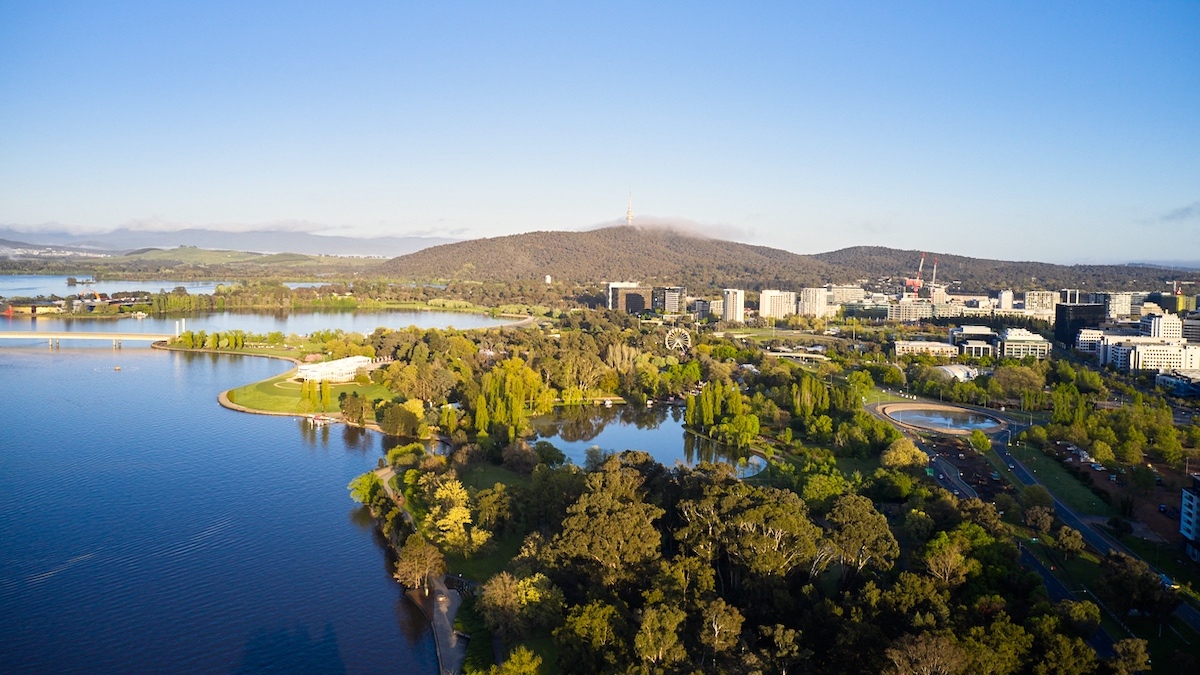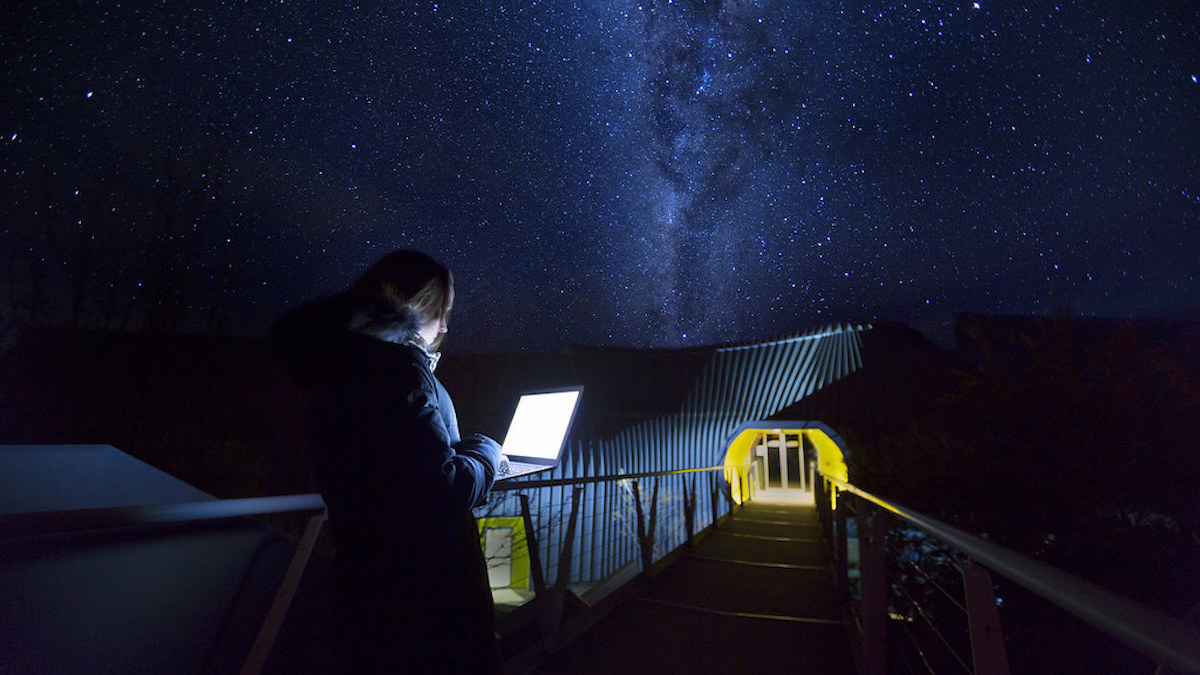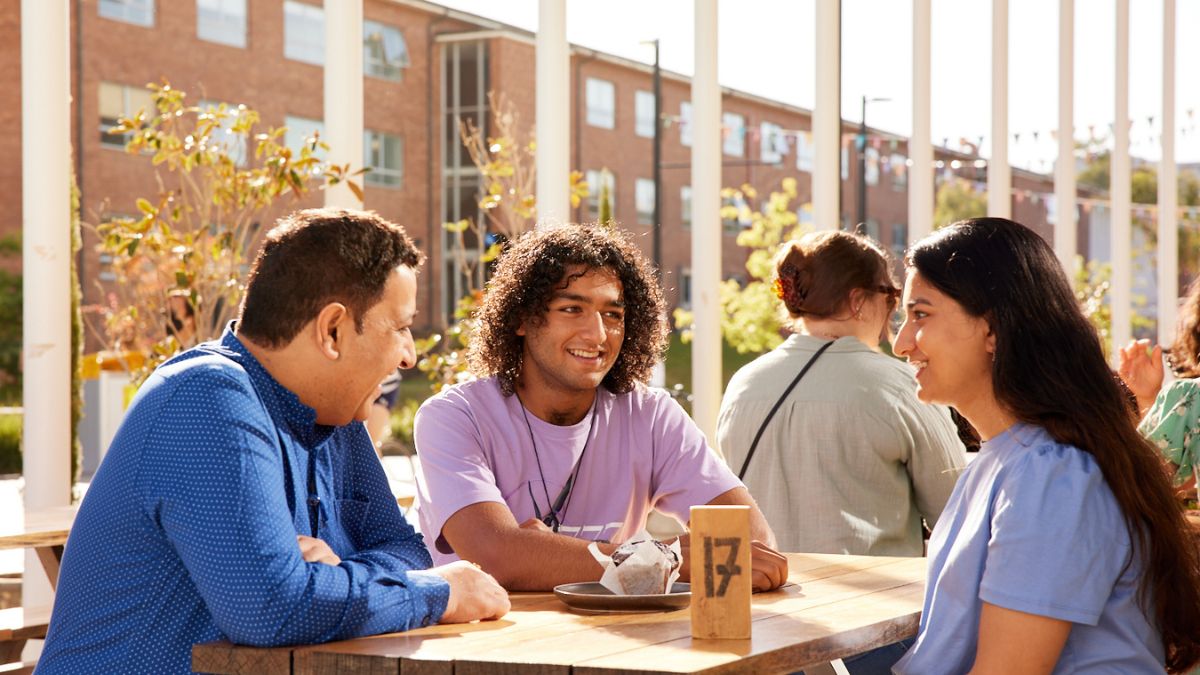The world’s only Nobel laureate vice-chancellor talks about how to make university the most transformative experience of your life.
He won a Nobel prize for discovering that 70 per cent of the universe is made up of a ‘dark energy’ nobody knew existed and is in demand around the globe for his ground-breaking cosmic insights, but Brian Schmidt AC, FAA, FRS, regards his years leading Australia’s only national university as among the most rewarding of his life.
Overview
- World-renowned astrophysicist Brian Schmidt AC, FAA, FRS, has been on a mission to give back to the university that helped him win the Nobel prize.
- Making sure ANU maintains its identity as a unique place among Australia’s educational institutions has been the number one focus of the US-born scientist.
- His experiences at the University from the perspective of researcher, teacher and vice-chancellor, put Brian in a great position to offer some insider tips on getting the most out of your undergraduate years.
Appointed Australian National University (ANU) vice-chancellor in 2016, the world-renowned astrophysicist has been on a mission to give back to the university that helped him win the prize awarded to a precious few for delivering “the greatest benefit to humankind”.
Making sure ANU maintains its identity as a place that’s unique among Australia’s educational institutions has been the number one focus of the US-born scientist.
When he hands over the VC baton at the end of 2023, Brian says he will do so happy with the difference he’s made, despite the challenges presented by the COVID-19 pandemic. As well as making progress toward achieving gender equity across ANU and improving the representation of First Nations Australians, he has transformed the student experience.
“Go to all the lectures you can on campus. You have these activities happening and amazing people from around the world who you get direct access to, so take these opportunities.”
“We have a bunch of state-of-the-art buildings and have made ANU attractive for students to travel to. Most Australian universities are commuter campuses [that people visit for classes and then leave] and I’m really proud of changing that conversation with Australian students…[being able to say] that ANU can be a transformative part of your life, a place you get to meet all these people and to live and do stuff with,” he says.
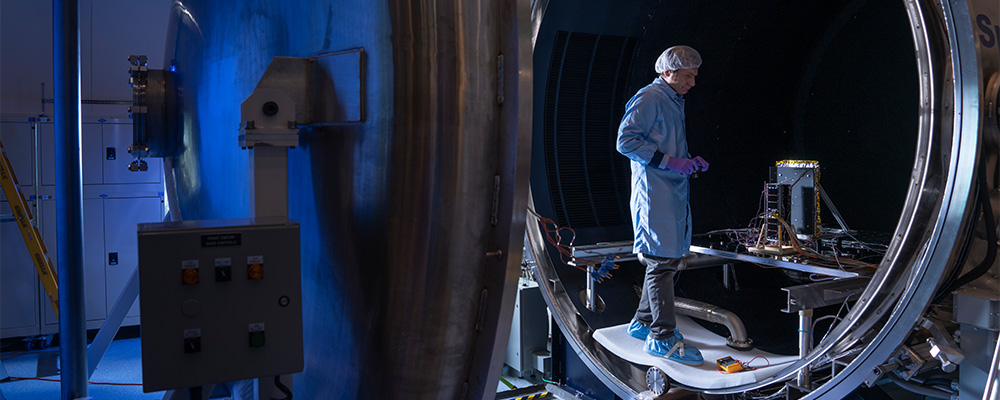
Technicians check over a satellite after undergoing a test at the Advanced Instrumentation Technology Centre
After stepping down from the top job, Brian will return to astrophysics research at Mount Stromlo Observatory and to teaching, creating “the class I wish I’d had when I was at university” for ANU students.
“It will explore contemporary Australian issues across everything from law to physics, but intertwined with the First Nations perspective and with what in modern Australia the issues and possibilities are,” he says.
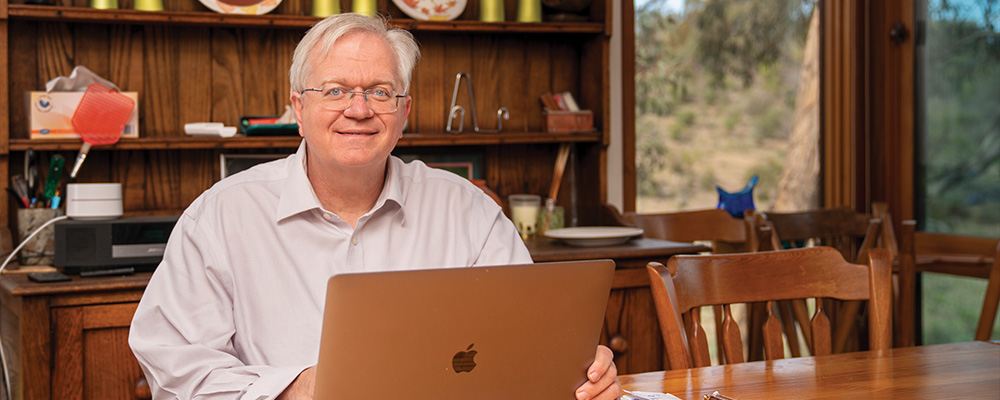
Brian sits in his home office.
Brian’s insider tips
Having had the rare opportunity to experience ANU from the perspective of researcher, teacher and, critically, the person responsible for shaping the University’s vision and direction as the world’s only Nobel laureate vice-chancellor, places Brian Schmidt in a position to offer some insider tips (or cosmic insights) on getting the most out of your undergraduate years.
1. Reset your expectations
Going off to university is a chance to reset your expectations, to raise them. You’ll meet people from around the world doing all sorts of things. Rather than just stick in the group you’re comfortable with, get out and meet people, ask questions, listen to what they think, and be prepared to take on ideas you wouldn’t have thought of before.
2. Get outside your comfort zone
Go out and experiment – take classes you wouldn’t have thought of. I took physics and astronomy as an undergraduate, but I also took anthropology, English literature, art history and three years of Russian. Some were quite hard, particularly the Russian, but it was good for me to get those extra things.
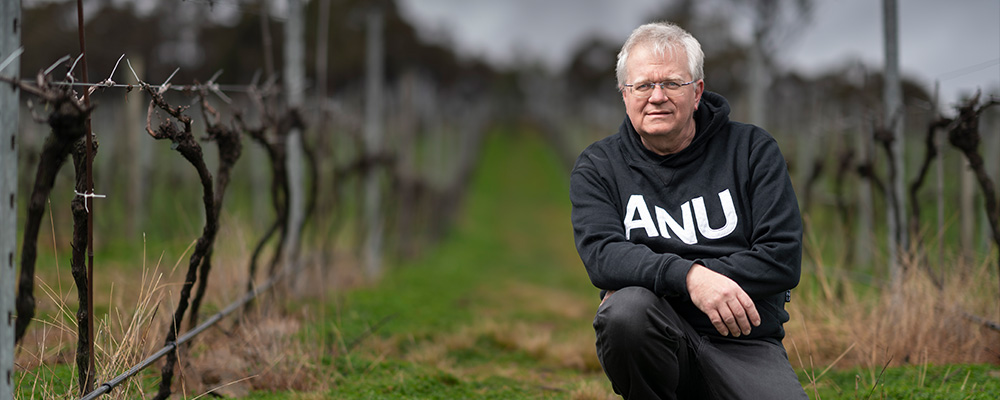
Brian at his Maipenrai vineyard on the outskirts of Canberra.
3. Have a focus beyond study
It’s important to study hard but also to have fun. Have other activities beyond just going to class. Here at ANU, we have 100 different clubs and societies covering almost anything you could imagine.
One of the things I do outside work and study is make wine. It’s good for physical activity and the winery is where I can relax and think about almost anything. It gives me creative time to think about hard or interesting problems.
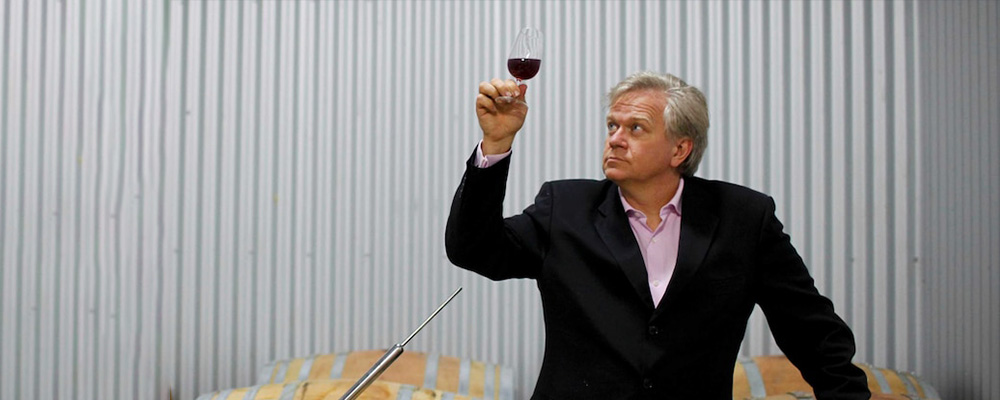
Brian looks at a glass of red wine at his vineyard.
4. Learn from your peers
Spend a lot of time with your friends and learn from them. Professors are good, you can chat with them too, but learning from your peers on things you’re struggling with, I think that’s probably the most successful way to learn.
5. Don’t prejudge your own ability
It’s important to pursue something you enjoy and are reasonably good at. Don’t pre-judge how good or bad you’re going to be at it before you give it a try. If you do find that you really enjoy something but it’s seriously hard for you compared with everyone else in the study group, maybe it’s a sign to find something else you enjoy but find a bit easier.
There are lots of things you can do in life, not just one thing. Don’t let there be just one thing. If I hadn’t stayed in academia I expect I could easily have ended up in the tech boom of the early 90s doing computer programming or engineering. The world is your oyster and I think people have more opportunities than they realise.
6. Make your passion your job
One of the best pieces of advice I was ever given is that if you can find a job that you’re prepared to do for free, then do that job. I was given this advice in high school and it didn’t quite make sense at the time but I completely get it now.
7. Use your gut instinct
University is a great opportunity for many people but it’s not necessarily for everyone. Use your gut instinct. If you’re considering coming to ANU, try to get an opportunity to visit, talk to people, and find out more online. If your gut says, ‘I want to come’, then come. If it says ‘I want to do something else or go somewhere else’, then that’s fine too. Ultimately you don’t want to have any sense of regret.
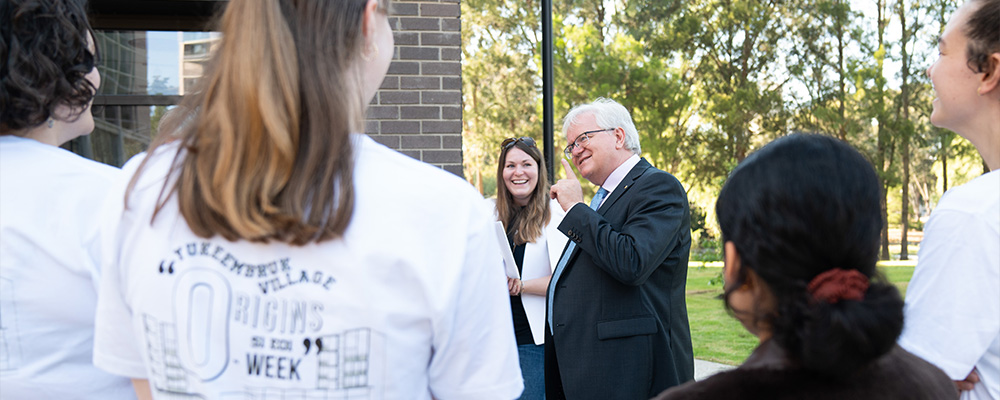
Brian Schmidt talks with students at the official opening of Yukeembruk ANU student residence.
8. The best places to hang out on campus
For a bit of solitude on the ANU campus, there’s Sullivans Creek beyond the beautiful China in the World building. There’s a bend in the creek where the water is still. It’s quite lush and green and there are often not many people around. In the old days there used to be a platypus there but I haven’t seen him a lot lately, but there are lots of birds. At the opposite end of the spectrum, I love walking around the middle of campus – there are students everywhere and a real vibe to it.
Brian on being a leader
The essence of leadership is building trust with those who need to take your leadership. And trust is very hard won. The Dutch say trust comes in on foot and leaves by horseback and that is true. The only way to be trustworthy is to always be trustworthy. Don’t be tricky. Be authentic, listen to people, understand their point of view and be prepared to change your own view based on what you’ve learned.
Discover what inspires you at The Australian National University.

